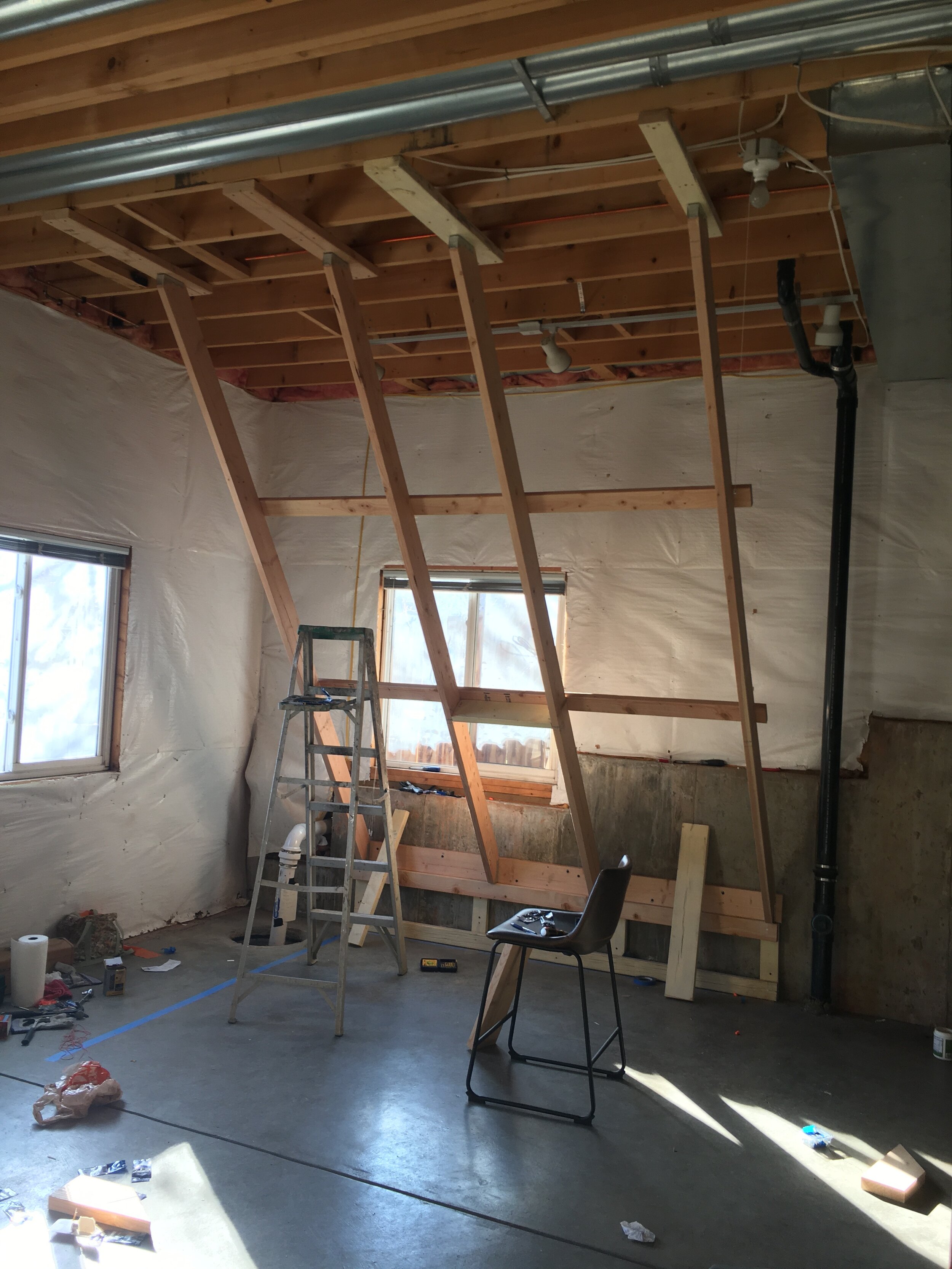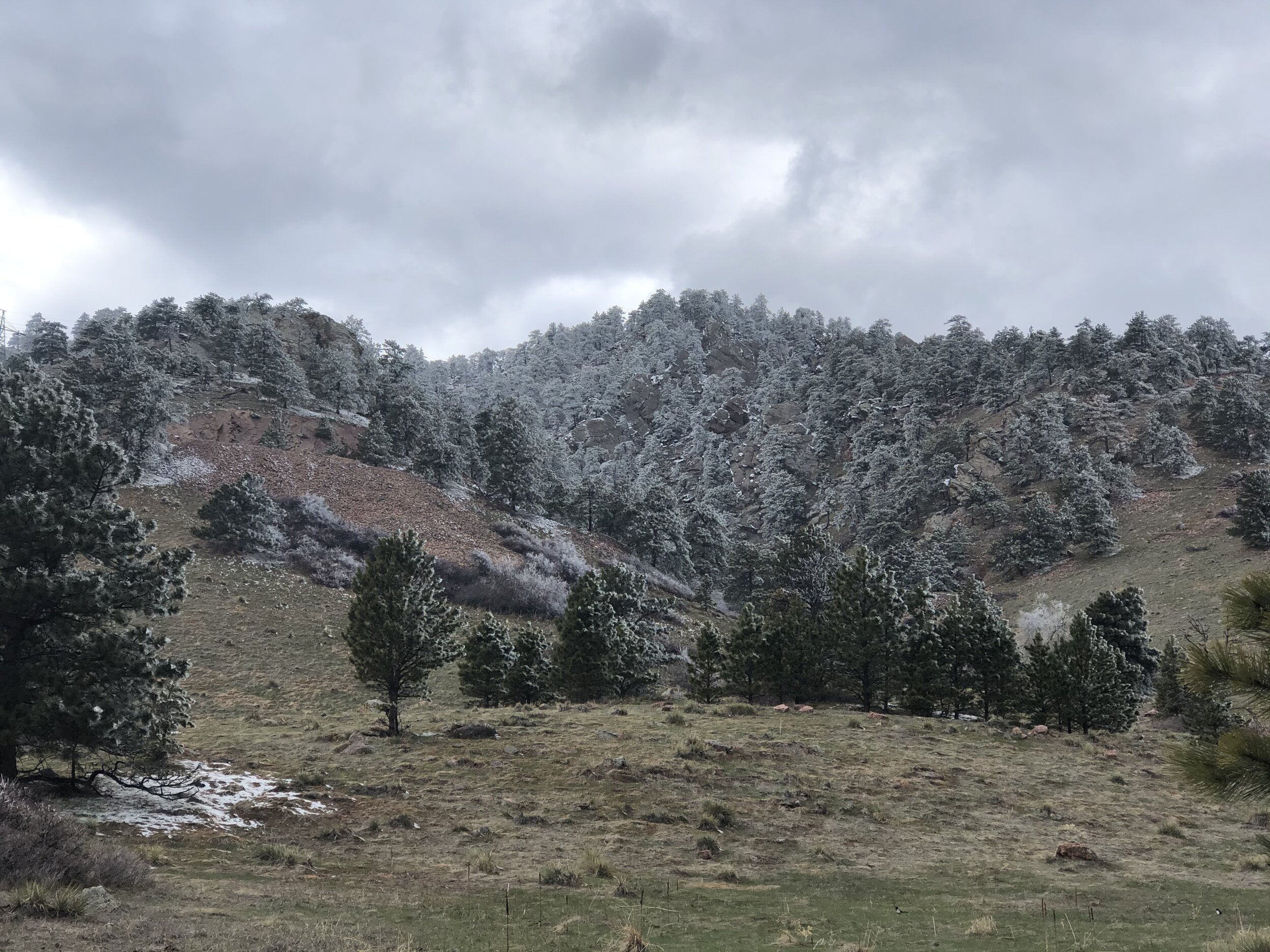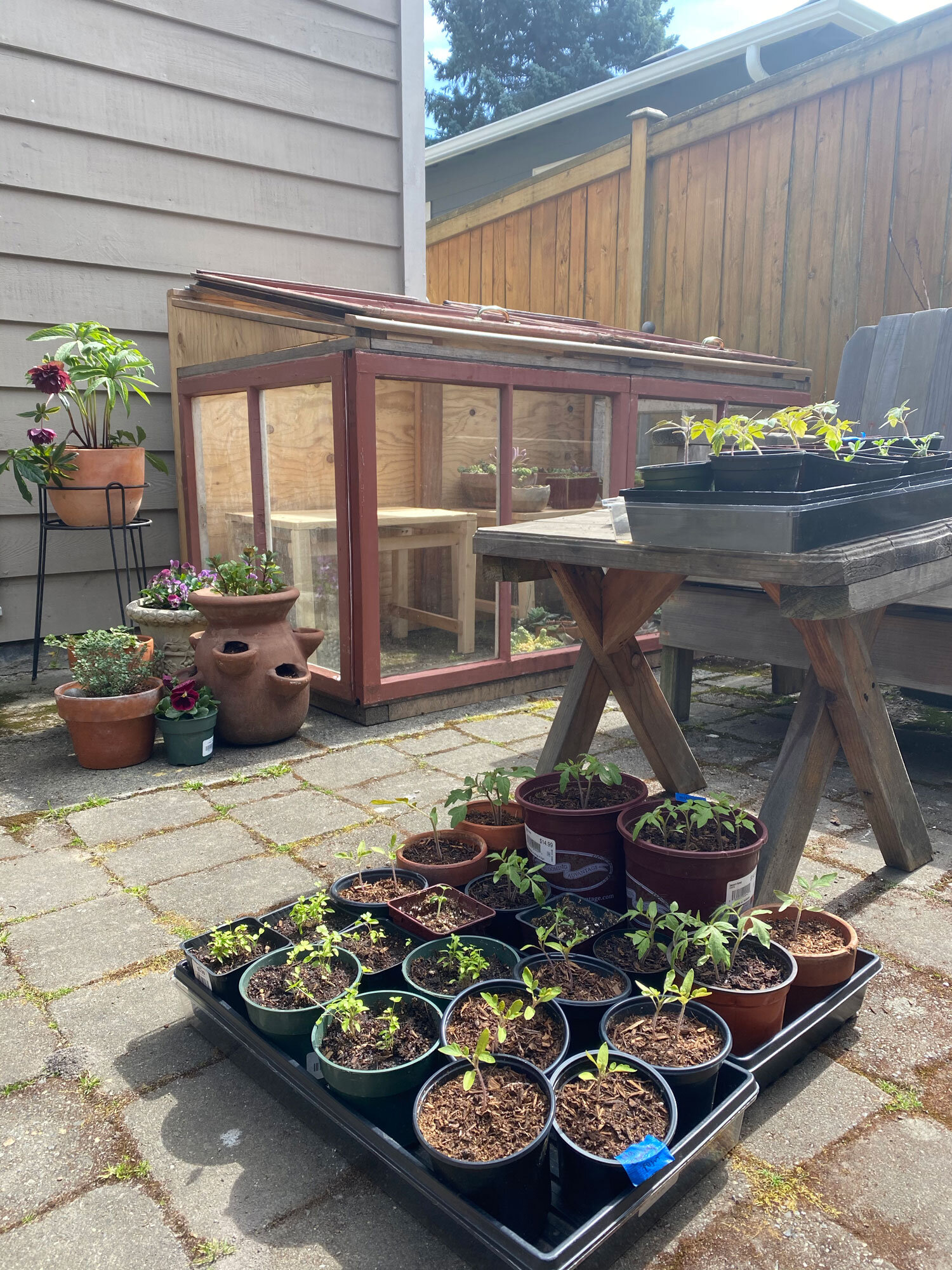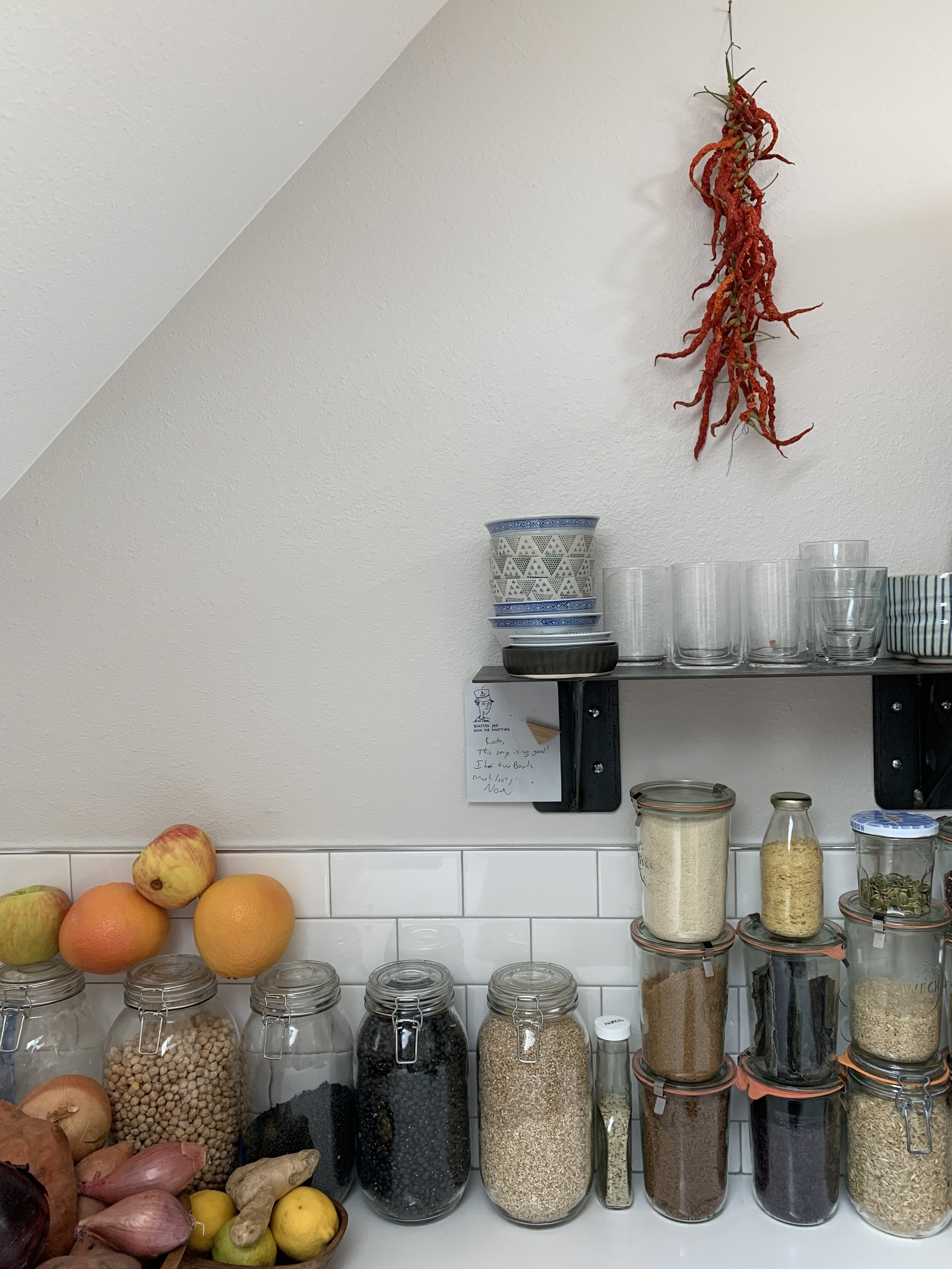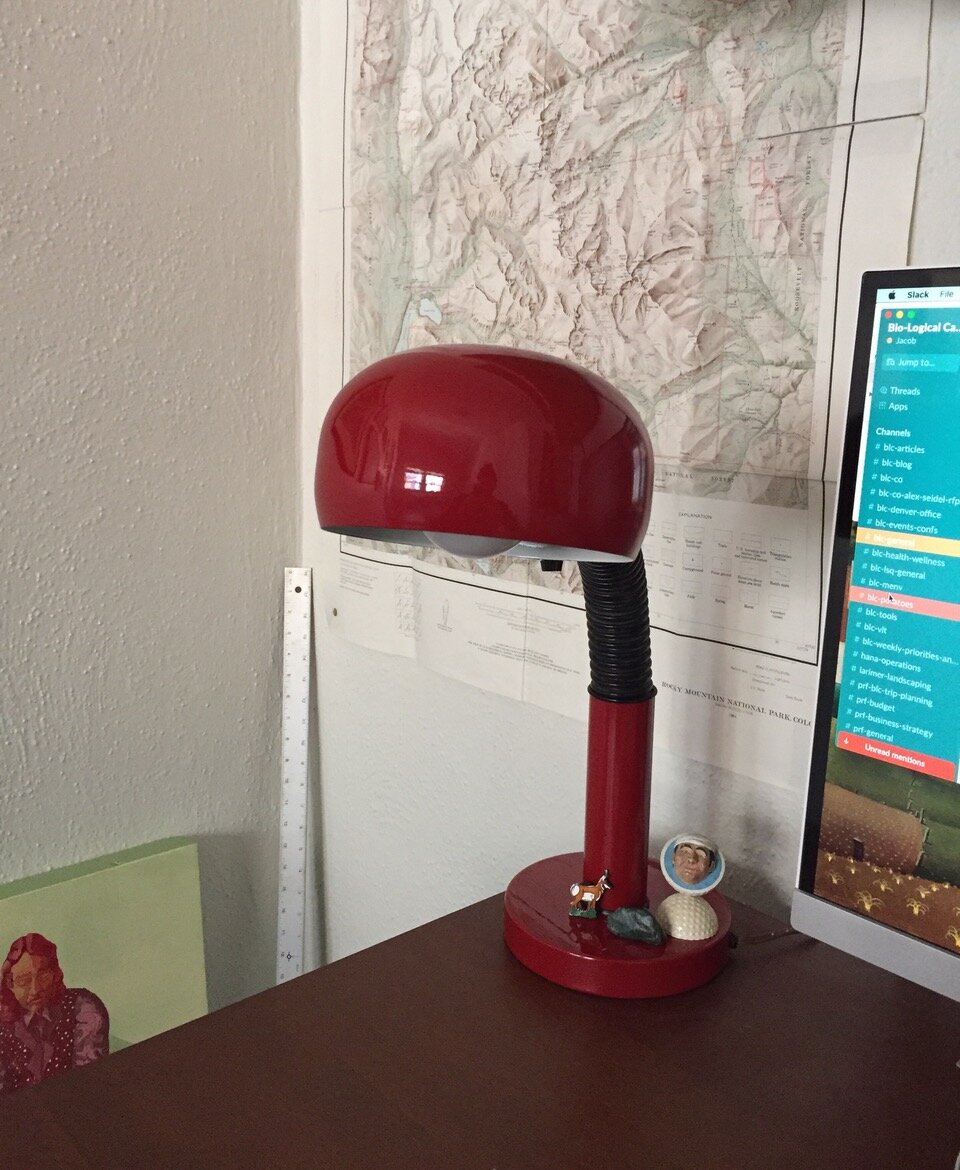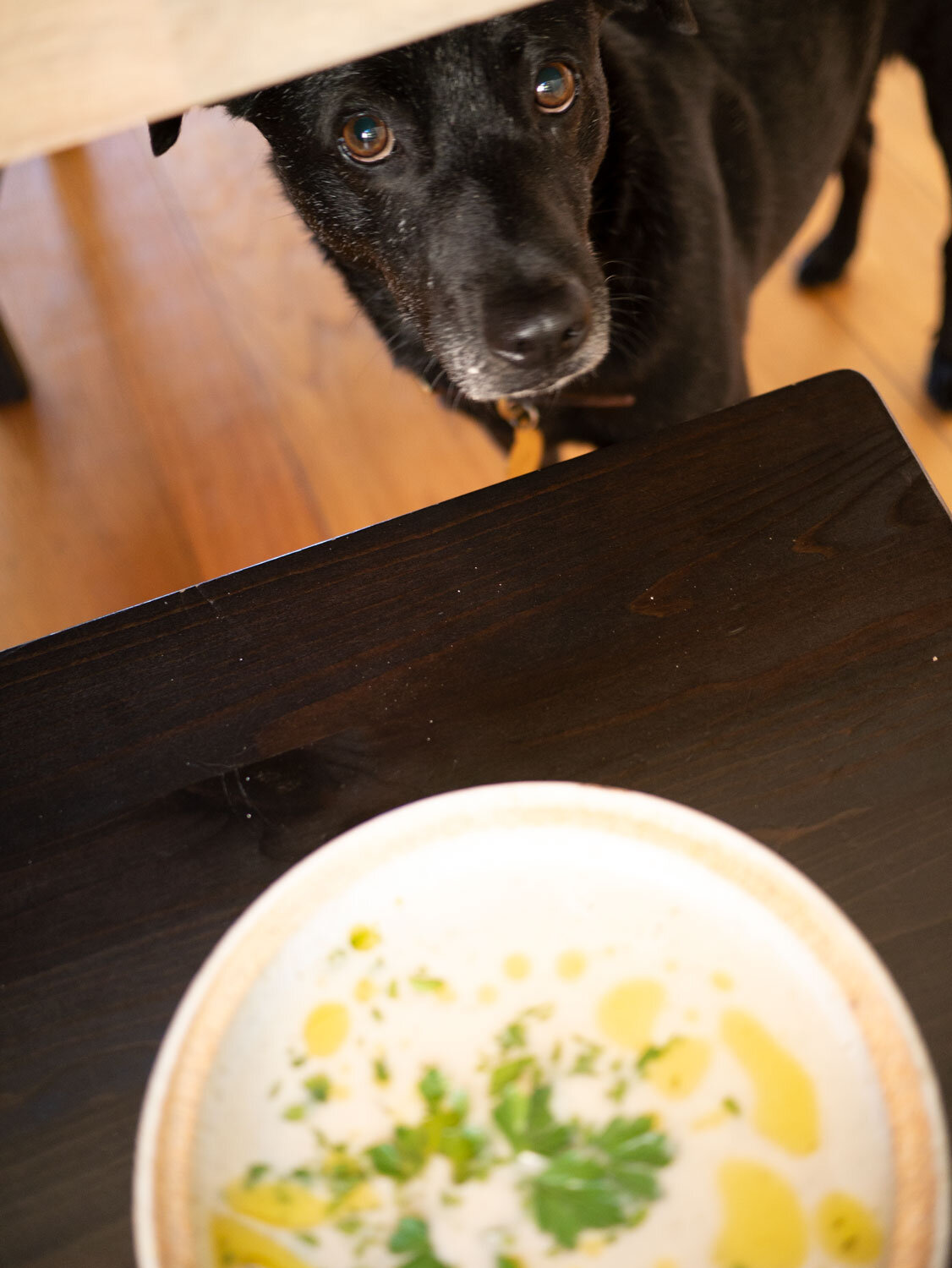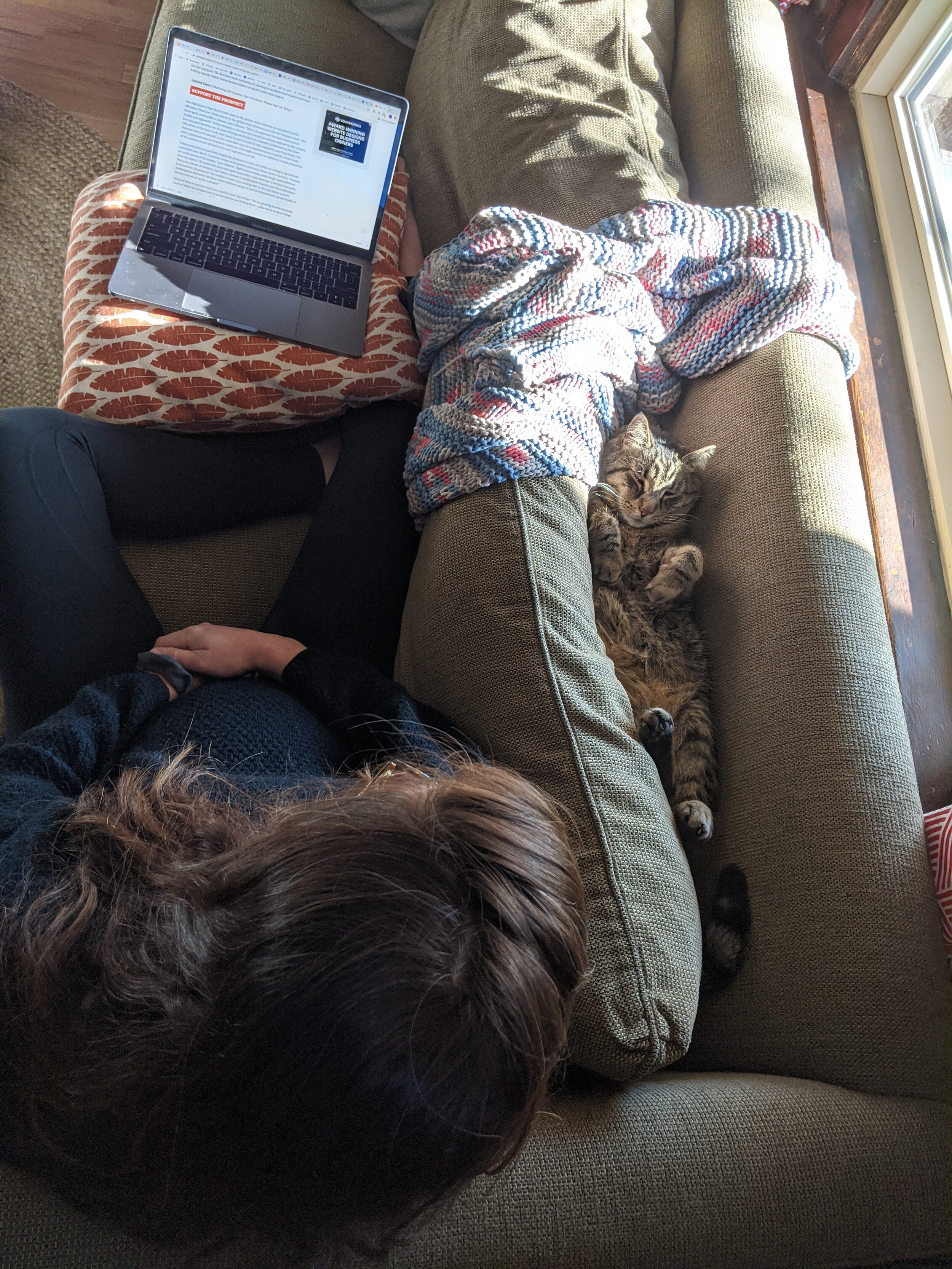Life In The Time Of COVID
By Meriwether Hardie
Around the world communities are making drastic changes to daily routines due to the outbreak of COVID-19. Our team is no exception. We have temporarily closed our Denver office and shifted to working remotely, while working hard to support our teams and projects across the US. This is a sobering time as we watch statistics roll in around the devastating effects of coronavirus on individuals, families, and businesses.
With more time at home, cooking and baking have once again become part of my daily routine. It is both a self care practice and a creative outlet. It feels good to be using my hands and producing delicious and nutritious food, while supporting the local farmers around me who are working hard to find new outlets for their produce and meat.
I have been dusting off old cookbooks and also getting new recipes from friends. Yesterday I made a delicious Garlicky Sausage & Bean Soup from our Philo Ridge Farm project. Our friends at Slow Food are also offering wonderful live free webinars "as a way to access and engage in all things Slow Food while we can't crowd in a kitchen or around a table together". The webinars cover everything from beekeeper basics, to sourdough starter recipes, to truffle risotto. They have also just posted a collective of free recipes to celebrate their 30 year anniversary, and as soon as the ingredients are in season, I plan to make Alex Seidel's Feta Peach and Tomato Salad!
My full pantry is a privilege, and the result of so many people continuing to work hard in our fields and grocery stores during this pandemic. I am also grateful for the good resources being compiled to help support our food and farm workers during this time, including: financial assistance and relief resources for restaurant workers, Food Chain Workers Alliance, F.A.R.M.S, RWCF COVID-19 Emergency Relief Fund and many others. Visit these pages and if you are able, please donate.
Like many, COVID-19 is forcing Bio-Logical Capital to adapt - from bigger and longer term opportunities around how we continue to build resilient food and farm businesses, to smaller every day questions around how we connect and collaborate in a virtual world. In the below, I’ve asked our team to share some reflections around what they are reading, cooking, and thinking about during this time. Some of our suggested readings are for inspiration or knowledge building, where as other readings are for mental escape or to remind us of the light at the end of a dark tunnel.
When I look and think beyond the urgency of right now, I have hope that this crisis will build collective momentum for a larger shift and investment in healthy food systems and healthy communities. Our team is eager and ready to be part of that shift.
We hope that you’re staying home and staying safe.
Kristen’s Pick
This is Water | David Foster Wallace
This is a commencement speech given in 2005 by the late David Foster Wallace about our abilities to consciously choose to create meaning in the mundane. I find myself returning to it during this time when we are forced to look at the (sometimes mundane) routines we've established and what they have to say about the lives we've built. Like the fish in the opening of Wallace's speech, in our "pre-COVID" lives we are swimming along completely unaware of the "water" that surrounds us every single moment of every single day - we don't even know it exists. With our routines momentarily on pause right now, we have enough space from them to finally see them for what they are. In the speech, Wallace reminds us, "The only thing that’s capital-T True is that you get to decide how you’re gonna try to see it... You get to consciously decide what has meaning and what doesn’t." The capital-T Truth is about "awareness of what is so real and essential, so hidden in plain sight all around us all the time, that we have to keep reminding ourselves over and over: 'This is water.' 'This is water.' "
I've been thinking about recently, how do we remember to see the water when this is all over?
One of my favorite new parts of my "covid" routine is building a climbing wall in my basement! We'll see how it turns out. - Kristen
Meriwether’s Pick
Beneath a scarlet sky | Mark Sullivan
During this time, I am especially grateful for the trees and the mountains out my back door. - Meriwether
I have been reading a book that I can not put down, Beneath a Scarlet Sky, which is based upon the true story of Pino Lella, a 17 year old Italian boy during World War II. The book follows Pino as he joins an underground railroad helping Jews escape over the Italian Alps and then as he enlists in the German army as a spy and becomes the personal driver for one of the Third Reich’s most powerful commanders. This story is both a love story and a war story. It includes beautiful mountain scenes while sharply portraying the cruelty of war. Although I have been using this book as a bit of a night time escape from the reality around me, it is a story of hope, inspiration, and perseverance, all of which are very applicable to the right now.
Gaelen’s pick
Saluting Nation’s Unsung Heroes During COVID-19 Pandemic | York Dispatch
During times like this it is necessary to think about the silver linings. As this article and many others have described, we are finding a new appreciation for many people who's work keeps the rest of us comfortable, calm, and safe. We all owe many people for what we enjoy and I can only hope that we continue to find appreciation for them. We have a very diverse and interconnected society, and it is necessary to understand and acknowledge how much we all rely on each other.
It's amazing the emotional uplift you can get just from watching plants grow. - Gaelen
Morgan’s Pick
Crisis Navigation Chart | Author unknown
A shot of our springtime gardening efforts: tomato starts getting some time out of the cold frame. - Morgan
This is a chart of how an individual (and how together, a community) navigates a crisis, like COVID-19, was shared by a friend of mine on social media last week. I sat with the image for a few days and used it to help me reflect and process on both my personal experience and my perception of how my community was navigating these uncertain times. Then I was able to incorporate the chart as a tool during a meeting with part of my team at work. Using it this way helped add context to a round table discussion we were having where different team members were describing some positive things they were experiencing in the world around them. It was engaging and inspiring to be able to see, through the shared conversation, that many people were naturally progressing into the Growth and Action zones described in the chart. I am sharing this in this setting as I hope that it continues to help others navigate towards positive growth and action during our health crisis!
Tad’s Pick
The Maine Farmer Saving the World’s Rarest Heirloom Seeds | DownEast
Since Carghill's meat processing plant closed 310 miles away from Philo Ridge Farm, farmers around Vermont and upstate New York are relying on Carl, Danny and their one employee at our local slaughterhouse. A team of three men in rural Vermont will process local meat for tens, maybe hundreds of thousands of families in the months ahead. In the story of aging seed-saver Will Bonsall, we are all weak links, and we decide how much to hold on. "If not for Bonsall, the lineage might have died out in a shoebox. 'He was the thread that kept that seed alive.'"
When I drove from Vermont to my new home in Colorado in February, I brought dried bounty of my home state, thinking I was frugal and sentimental. Now we are in a new city where the grocery aisles are sometimes empty, but our shelves are graced by Vermont hard winter wheat flour, black turtle beans, dried purple corn, and chicken's claw peppers harvested fresh and dried in the closet. - Tad
Jacob’s Pick
The Log from the Sea of Cortez | John Steinbeck
These days I am constantly arranging and cleaning and organizing and reorganizing. Last weekend I took that to a new level and repainted my desk lamp. The result was very red. - Jacob
This book gets lost amidst Steinbeck’s better known novels, sandwiched somewhere between The Grapes of Wrath, Of Mice and Men, and The Pearl. It is a rare example of his non-fiction in which he recounts a six-week marine biology research expedition he plotted in the Gulf of California with the biologist Ed Ricketts. When their trip began, the world must have felt as though it was on the edge of collapse. It was the spring of 1940 and all of Europe was descending into war. The book is a testament to our human capacity to adapt amidst the absence of normal. It is also great armchair adventure in a time when we’re all stuck at home.
Olivia’s Pick
Food Distribution 101: What Happens When the Food Supply is Disrupted by a Pandemic | Civil Eats
As we as a society shelter in place, it is easy to overlook the workers that allow us to do so safely. And how vulnerable those workers (farmers, processors, grocery stockers, delivery drivers) are to the coronavirus. Additionally, we are seeing large amounts of food waste as farmers are being forced to dump milk, eggs, and produce because of disruptions in their distribution - even while there is an unprecedented need at food banks and shelters. This article from Civil Eats digs into how food distribution works in the US to better understand the weaknesses in our supply chain that we are now seeing clearly with COVID-19.
Behind the scenes of a recipe photoshoot last week… I have one eager coworker wondering if I need a taste-tester. - Olivia
Lilly’s Pick
Coronavirus Turns Urban Life’s Roar to Whisper on World’s Seismographs | New York Times
I’ve been busy trying to keep up with my new office assistant. - Lilly
Our “footsteps" - or the ways in which we as a species traverse the earth - are heavy and loud. This observation may not seem entirely surprising given our population of 7.8 billion and mass globalization, but with more than half the world ordered to shelter-in-place, borders closed, and transportation at a near halt, geoscientists no longer see the “thumping pulse of humanity” on seismometers around the world. For the first time, scientists are able to hear the more subtle tectonic undercurrents of our planet with the seismometers near urban areas; the aftershocks from earthquakes, volcanic rumblings, and geologic shifting from the earth's interior. Beyond just the scientific findings, these seismometers show a collective human experience created by this pandemic: stillness.


